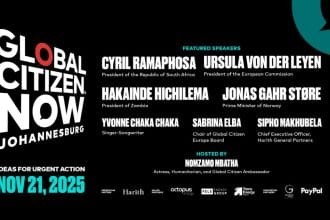The Johannesburg Roads Agency (JRA) has disclosed that the cost of repairing a single traffic light has nearly tripled due to persistent vandalism by copper thieves.
Speaking at a media briefing on the city’s traffic infrastructure, acting head of department Sipho Nhlapo explained that traffic lights, which previously cost around R100,000 to repair, now require close to R200,000, with some instances reaching R300,000.
Increased Spending on Repairs
Due to these soaring costs, the agency has been forced to allocate more resources to fixing traffic signals rather than upgrading infrastructure. At times, they even had to request additional funding from the mayor to restore signals that had already been repaired, Nhlapo stated.
Protective Measures Against Theft
In response to the increasing vandalism, the agency is now focusing on measures to safeguard traffic lights. “We have installed bollards around the poles to make it more difficult to access the copper. Anyone attempting to steal it would need high-grade tools, like a diamond cutter, to get through the layers of protection,” said Nhlapo.
He further explained that some cables are now being placed in underground chambers, reinforced with concrete to make them harder to access. However, the ongoing security enhancements are driving up the cost of repairs significantly. “Every time we strengthen our defenses, the cost of fixing a simple traffic light keeps rising. This is a major concern,” Nhlapo warned.
Organized Copper Theft Rings
Nhlapo also highlighted the organized nature of copper theft, emphasizing that it extends beyond small-scale criminals. “Copper theft is not a minor issue involving a few individuals. There are large enterprises likely involved in selling stolen copper. Just two weeks ago, a truck driver in Randburg was arrested with copper worth R6 million, showing that there is a well-established market for this stolen material,” he added.
Water Infrastructure Challenges
Alongside traffic infrastructure issues, Joburg Mayor Dada Morero addressed the city’s water challenges. While water availability is not a concern, aging and faulty infrastructure contribute to significant losses. “Through engagements with the national water department, we confirmed that there is no water shortage. However, leaks and infrastructure issues remain a major problem,” said Morero.
Leak Detection and Pressure Management Initiatives
To combat these issues, the city has installed 125 noise loggers to detect leaks and plans to deploy an additional 400 by June 2025. Additionally, Joburg Water is implementing pressure management strategies, with 27 pressure-reducing valves already retrofitted with smart controllers and another 100 expected to be installed by mid-2025.
Morero reassured residents that ensuring a stable water supply remains a priority. “Joburg Water continues to provide stationary tanks and roaming tankers for affected communities. While we are committed to addressing water shortages, we will also intensify efforts to disconnect illegal connections across the city,” he stated.
The JRA’s Commitment to Long-Term Solutions
As the city battles both copper theft and water infrastructure issues, officials remain determined to find long-term solutions to these persistent challenges. The JRA continues to explore innovative methods to protect traffic signals, while Joburg Water is working towards reducing leaks and improving distribution efficiency. Authorities emphasize that addressing these issues is crucial to ensuring the sustainability and reliability of the city’s essential services.
Related article: Johannesburg Faces Traffic Crisis: R70 Million Needed to Repair Vandalised Traffic Lights













